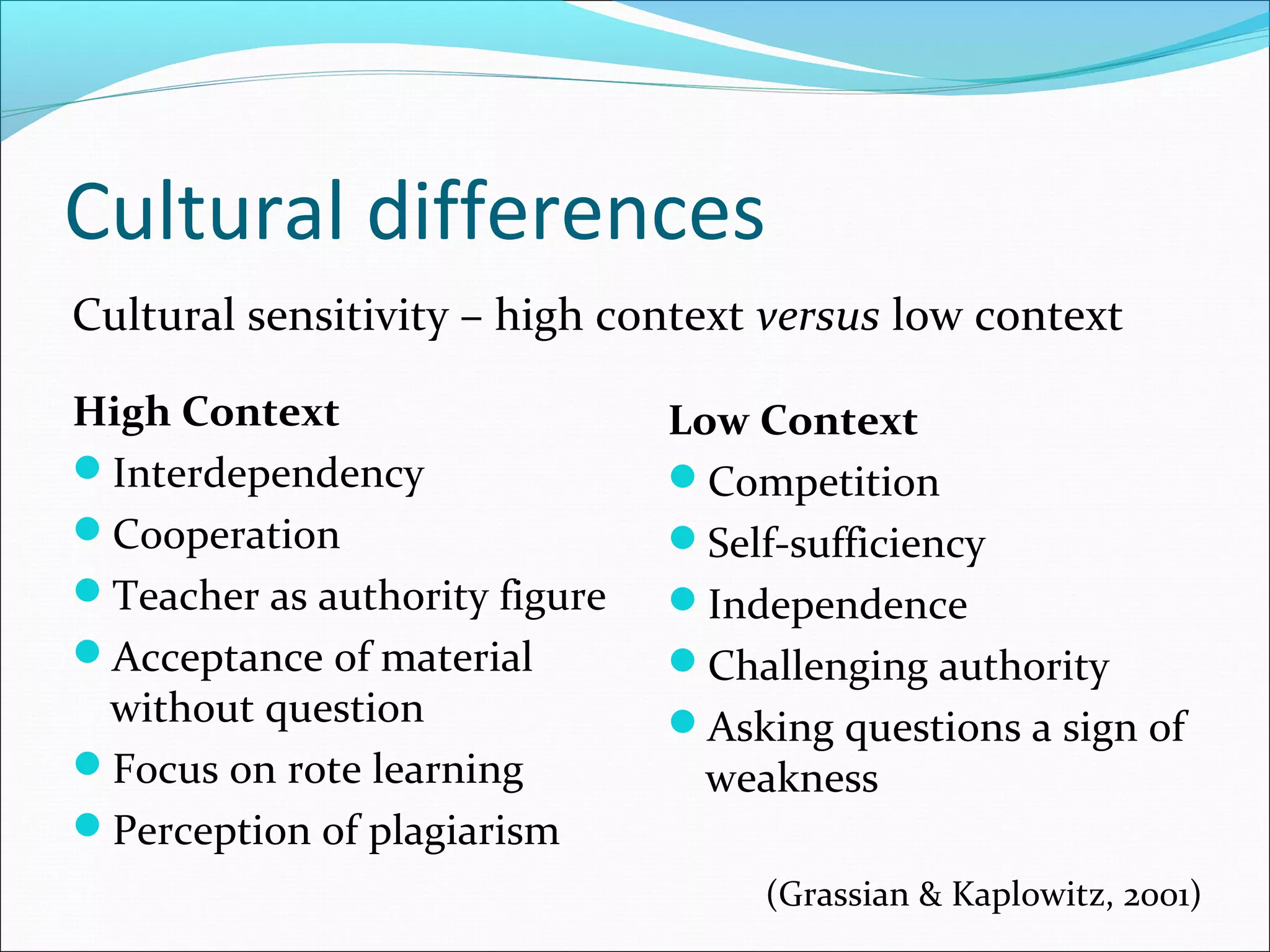This document outlines Claire McGuinness' presentation on conceptualizing the role of teaching librarians. It discusses students' views on the role, defining information literacy, current practices of teaching librarians in Irish higher education, and concepts shaping the future of the field. Key concepts discussed include developing a teacher identity, the need for teacher training and knowledge of pedagogy, reflective practice, understanding different types of students, strategies for collaboration, and the importance of advocacy. The document provides an overview of the current work and discussions around the evolving role of librarians as teachers.








































